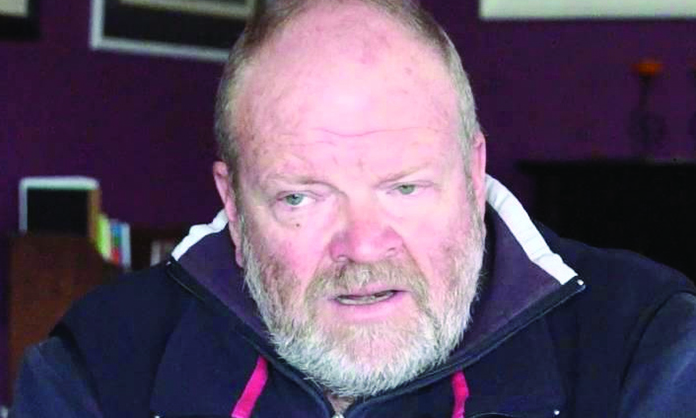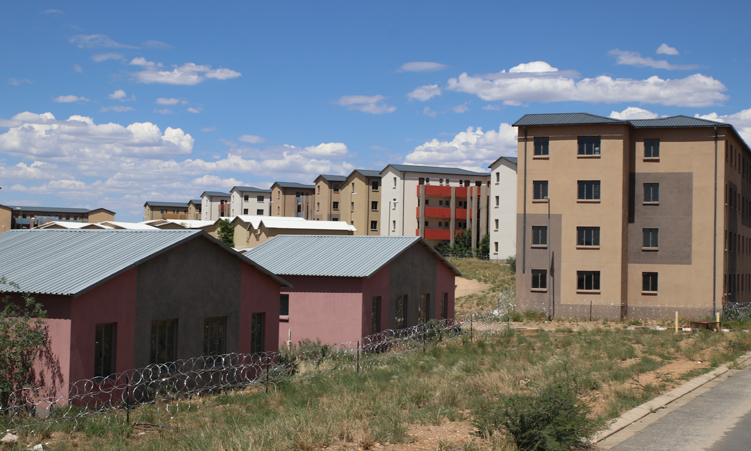A sisturbing IF not frightening, development has been triggered by an ‘Open Letter’ (23 May 2023) by seven retired bishops of Elcin (Evangelical Lutheran Church in Namibia).
They call on Namibia’s head of state to exercise his powers to get the Supreme Court to reverse its ruling on recognising same-sex marriages validly concluded outside Namibia.
The appeal itself is not as disturbing as its apparent consequences in society and – even more so – in the political domain, assuming it provides a spark for political mayhem about the Supreme Court ruling.
Namibia suffers from extreme poverty, unemployment, and inequality, and “one would have thought that these are the kind of issues that would keep the ruling elite awake at night… not the private carnal affairs of individuals” (activist John Nakuta in The Namibian of 26 June 2023).
These social and economic phenomena have persisted for many years without all-out efforts to implement effective counter measures.
However, ‘private carnal affairs’ have prompted certain politicians to suddenly develop an unusual capacity to get bills drafted in record time and pushed through the National Assembly with unprecedented haste.
The retired Elcin bishops profess to continue raising their “unequivocal voice in the spirit of love, peace and positive objective”, while simultaneously issuing a veiled threat that “hatred and obvious tension is being created between church and state in Namibia” because of the Supreme Court ruling.
This is accentuated by their ominous demand that the head of state explore all avenues “to avoid chaos and unnecessary war in Namibia” brought about by the ruling!
TO BE CLEAR
Without refuting or disproving each and every reason for the bishops’ demand, the following should be clarified:
• The Supreme Court ruling on same-sex marriages only applies to foreign spouses married to Namibian citizens abroad in terms of valid foreign legislation.
• The ruling does not infringe on the Constitution. On the contrary.
• The ruling does not infringe on national traditions and cultural norms – at least not of all Namibians, proof of which is the said ruling.
• The bishops are attempting to force the executive branch (head of state) as well as the judicial branch (supreme Court) and – indirectly – the legislative branch (parliament) to do their bidding ‘as (former) leaders of the church (Elcin).
SECULAR STATE
Article 1 of the Constitution defines the Republic of Namibia as a “sovereign, secular, democratic and unitary state”.
It is important to understand that Namibia, as a secular state, is not run in terms of any religion.
Further, Namibia has a diverse population with different cultures, languages, and traditions, who often adhere to different values and beliefs.
To achieve a unitary, democratic constitutional dispensation, it required serious debate and a give-and-take process from the 72 founding members of the Constitution to arrive at and agree on compromises in terms of these different values and beliefs.
The outcome provides a foundation for respecting each other, promoting social cohesion, and promising dignity and human rights for all citizens.
The Constitution therefore represents “A covenant for the Namibian people… and has the force of law… No law and no person are above the Constitution, and every Namibian is equal under it.” (‘The Namibian Constitution in Perspective 1994’ – Joseph Diescho).
The Constitution creates and regulates the three branches of government, the executive (president and Cabinet), the legislature (parliament), and the judiciary (the courts).
The courts, especially the Supreme Court, are constitutionally ordained as custodians of the Constitution and, as such, are obliged to protect the fundamental rights and liberties of all Namibian individuals or groups in terms of the Constitution.
Therefore, the Supreme Court or High Court can set aside an act of parliament, which takes away any constitutional right from an individual or group.
Parliament can not overrule constitutional decisions by the Supreme Court.
FUNDAMENTALS
AND PRIORITIES
Having clarified the role of religion and the three branches of government in relation to the Constitution, the question of the rights of the LGBTQ community within the constitutional framework remains.
The fundamental rights violated by the Elcin bishops in their open letter include:
• Respect for human dignity
• Equality and freedom from discrimination
• The right to marry and found a family
Article 10 (2) of the Namibian Constitution categorically states that “no persons may be discriminated against on the grounds of sex, race, colour, ethnic origin, religion, creed or social or economic status”.
Article 14 defines marriage as a relationship between two freely consenting adults, free to marry regardless of their “race, colour, ethnic origin, nationality, religion, creed or social or economic status”.
Namibia with its diverse population is home to many minority groups, who enjoy the protection of our Constitution.
Why is it – one may ask – that the bishops are raising the alarm about a distinctly harmless minority, who have been created differently, while social scourges like GBV (gender-based violence), untold numbers of rapes, adultery, and incestuous relations do not seem to warrant nearly as much of an outcry by the respective clergy?
‘THEN THEY
CAME FOR ME’
May the courts continue resisting the attempts to undermine the fundamental rights of individuals or minority groups.
May civil society raise their voices against the discrimination of minorities, who don’t intend imposing any of their preferences or customs on other members of society.
May level-headed politicians remain steadfast in their fair assessment of the situation and resist being drawn into minority bashing.
And may contemporary spiritual leaders rather raise their voices and act in support of measures curtailing poverty, crime, inequality and injustices.
To quote pastor Martin Niemöller on persecution and civil courage:
“First they came for the Communists, and I didn’t speak up because I wasn’t a Communist.
“Then they came for the Jews, and I didn’t speak up because I wasn’t a Jew. Then they came for the Catholics, and I didn’t speak up because I was a Protestant.
“Then they came for me, and there was no one left to speak for me.”
In the African context, one could extend this as follows:
“The Hutu came for the Tutsi, and I didn’t speak up because I wasn’t a Tutsi.”
Or in the context of our topic:
“First they came for the LGBTQ but I didn’t speak up because I wasn’t LGBTQ.
Then they came for me…”
- Anton von Wietersheim, a member of Namibia’s Constituent Assembly (1989), and a former member of parliament (1990-1995 and 2010-2015)
Stay informed with The Namibian – your source for credible journalism. Get in-depth reporting and opinions for
only N$85 a month. Invest in journalism, invest in democracy –
Subscribe Now!






